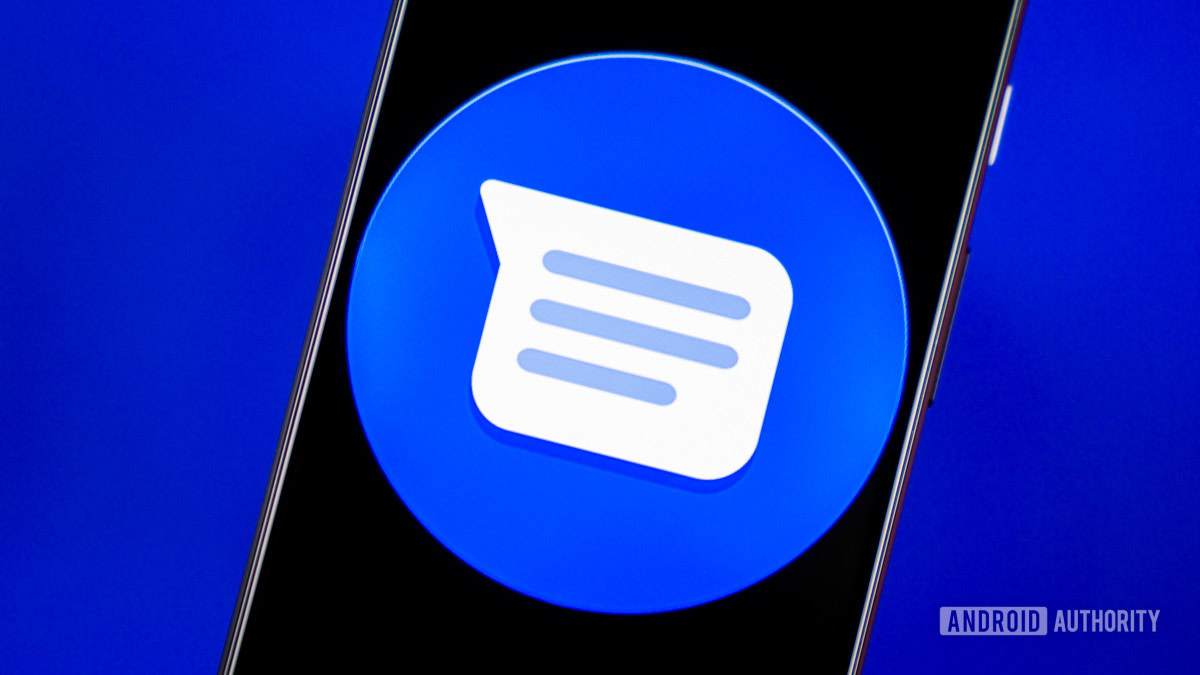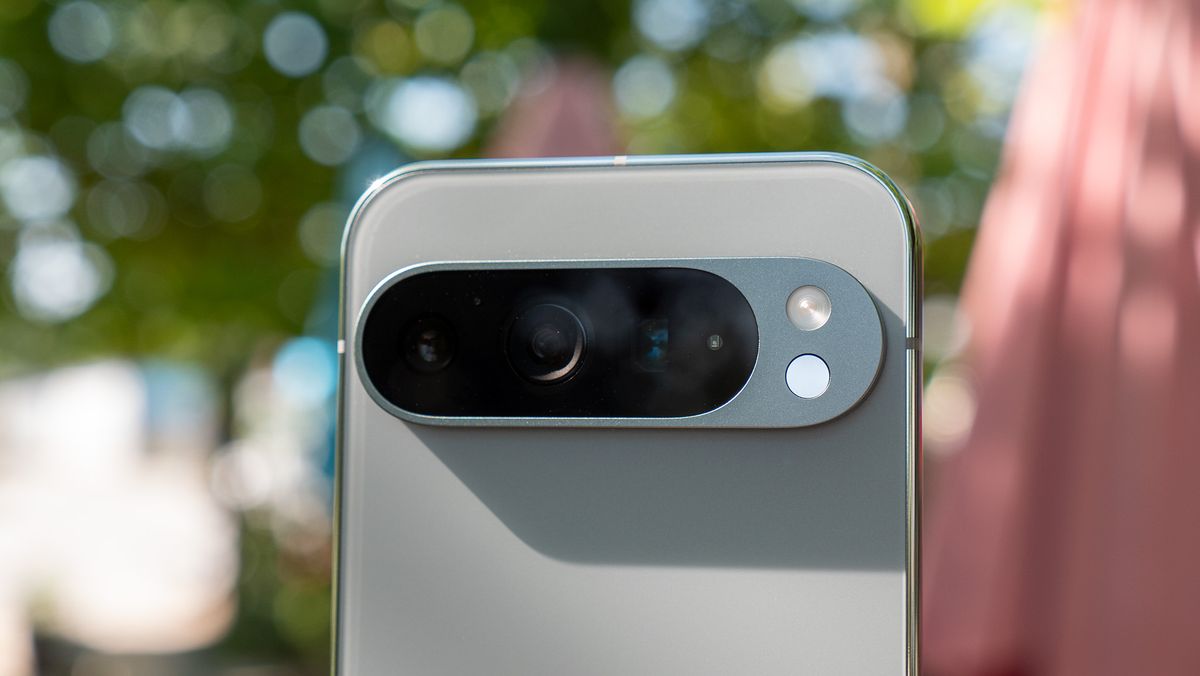Google Pixel 9 vs Galaxy S24: Which should you buy?

If you’re a patient buyer but are weighing up the best Android smartphones of the year, there’s a chance that you’ve been waiting for Google to show its cards. Now that the Pixel 9 series is here, how does it compare to its rivals from brands like Samsung? If you need a detailed comparison between the Pixel 9 vs Galaxy S24, read on.
Google Pixel 9 vs Samsung Galaxy S24: At a glance
- The Pixel 9 offers more RAM than the Galaxy S24.
- The Pixel 9 offers faster wired charging than the Galaxy S24.
- Google’s Pixel 9 has a much larger battery.
- The Galaxy S24 includes a telephoto camera, which the Pixel 9 lacks.
- The Galaxy S24 is smaller and much lighter than the Pixel 9.
Google Pixel 9 vs Samsung Galaxy S24: Specs
| Google Pixel 9 | Samsung Galaxy S24 | |
|---|---|---|
| Display | Google Pixel 9 6.3-inch OLED | Samsung Galaxy S24 6.2-inch AMOLED |
| Processor | Google Pixel 9 Google Tensor G4 | Samsung Galaxy S24 US: Qualcomm Snapdragon 8 Gen 3 for Galaxy Global: Samsung Exynos 2400 |
| RAM | Google Pixel 9 12GB LPDDR5X | Samsung Galaxy S24 8GB LPDDR5X |
| Storage | Google Pixel 9 128 or 256GB | Samsung Galaxy S24 128 or 256GB |
| Power | Google Pixel 9 4,700mAh | Samsung Galaxy S24 4,000mAh |
| Cameras | Google Pixel 9 Rear – 50MP wide (ƒ/1.68 aperture, 82-degree FoV, 1/1.31-inch sensor, AF, OIS, EIS) – 48MP ultrawide (ƒ/1.7 aperture, 123-degree FoV, 1/2.55-inch sensor, AF) – No telephoto lens Front: | Samsung Galaxy S24 Rear: – 50MP main (ƒ/1.8 aperture, OIS) – 12MP ultrawide (1.4 μm pixel width, ƒ/2.2 aperture, 120-degree FoV, 1/2.55-inch sensor, AF) – 10MP telephoto Front: |
| Dimensions and weight | Google Pixel 9 152.8 x 72 x 8.5mm | Samsung Galaxy S24 147.0 x 70.6 x 7.6mm |
| Video | Google Pixel 9 Rear: No 8K video support 4K (24, 30, or 60fps) 1080p (24, 30, or 60fps) Front: | Samsung Galaxy S24 Rear: 8K at 24/30fps (main lens only) 4K at 30/60fps (all lenses) Front: |
| Audio | Google Pixel 9 Stereo speakers | Samsung Galaxy S24 Stereo speakers |
| Ports | Google Pixel 9 USB-C 3.2 | Samsung Galaxy S24 USB-C 3.2 |
| Durability | Google Pixel 9 Gorilla Glass Victus 2 (front and back) | Samsung Galaxy S24 Gorilla Glass Victus 2 (front and back) |
| Software | Google Pixel 9 Android 14 with Pixel UI | Samsung Galaxy S24 Android 14 with One UI 6.1 |
| Colors | Google Pixel 9 Obsidian (black), Porcelain (cream), Wintergreen (green), Peony (pink) | Samsung Galaxy S24 Onyx Black, Marble Gray, Cobalt Violet, Amber Yellow |
These two base flagships are for people who want all the benefits of the proper premium devices without the penalty of a higher price or larger frame. This means that both phones receive silicon similar to their Pro and Ultra siblings but wear a much smaller display. The Pixel 9 employs a 6.3-inch screen that offers a higher peak brightness (2,700 vs 2,600 nits) and density (422 vs 416ppi) than the Galaxy S24. The Samsung’s 6.2-inch display does have a wider refresh rate range, dropping to as low as 1Hz to save power and 120Hz to please your eyes. The Pixel 9’s display can only muster 60Hz in such cases, even though it can also hit 120Hz when required.
The Pixel line has traditionally cowered in the shadow of Samsung’s specs-is-everything Galaxy series, but this isn’t quite the case in 2024.
The Pixel line has traditionally cowered in the shadow of Samsung’s specs-is-everything Galaxy series, but this isn’t quite the case in 2024. Google’s new phone uses the Tensor G4 SoC, a minor but welcome upgrade over the feverish Tensor G3. Despite the claimed improvements to AI performance and efficiency, the Google chipset should be less impressive in a straight line than the Snapdragon 8 Gen 3 for Galaxy available for US buyers. For global users, Samsung uses the Exynos 2400 in its compact flagship.
It’s a different story when it comes to RAM. Google stuffs the Pixel 9 with 12GB of memory to support its AI ambitions, beating out the comparatively meager 8GB in the Samsung. This 4GB gap should give the Pixel more headroom for Gemini activities, but it remains to be seen just how much of an advantage this will be. For what it’s worth, we’ve not found Galaxy AI wanting when it comes to speed.
There is software parity, at least. Both Google and Samsung promise buyers seven years of OS updates and security patches. As the newer phone, the Pixel 9 will receive additional months of support beyond the Samsung. This could be significant, especially as this may mean an additional Android version update for the Pixel 9 thanks to its August launch date.
Pixel 9 vs Galaxy S24: Design, size comparison, and colors
The Pixel 9 and Galaxy S24 are two of the smaller fully-fledged flagships you can buy in 2024. Thanks to their compact displays, both phones are highly pocketable and much easier to use with one hand than their larger siblings.
In real terms, the Pixel 9 is the larger of the two devices, and by a fair margin. It’s 5.8mm taller, 1.4mm wider, and 0.9mm thicker than the Galaxy S24. It’s also decidedly heavy for a compact smartphone, just short of 200g. In comparison, the Galaxy S24 weighs 168g, giving the Google phone a 30g disadvantage. This wouldn’t usually be a problem, but smaller and lighter is everything for those seeking a compact Android phone.
In real terms, the Pixel 9 is the larger of the two devices, and by a fair margin.
Design preference is highly subjective, but I’d argue that Samsung is far more conservative than the Pixel 9. The Galaxy S24 proudly wears Samsung’s clean and functional styling, shared across the S and A series. You either like it or don’t, but the triple rear camera stack is decidedly and unmistakably Samsung. The Galaxy S24 is offered in Cobalt Violet, Amber Yellow, Marble Gray, and Onyx Black colorways.
The Pixel 9 is also undeniably Google. Yes, the imposing rear camera bar has been redesigned into an imposing camera pill, but it’s a far cleaner design choice. The Google phone’s lines are also sharper, its sides are flatter, while its buttons are broader. It’s one of the more iPhone-like Google phones ever. This isn’t a bad thing, and thanks to its array of colors, the phone is a looker. You can have the Pixel 9 in Obsidian, Porcelain, Wintergreen, or Peony.
Pixel 9 vs Galaxy S24: Camera

C. Scott Brown / Android Authority
Pixel 9
Google has traditionally leaned on its software processing smarts to hone its camera abilities, while Samsung opted for the brute force approach. However, the Pixel 9 boasts more collective megapixels across its two rear cameras than the Galaxy S24 across its three. Megapixels aren’t everything, but it’s an interesting observation nonetheless.
While the Pixel 9’s 50MP main camera may be carried over from the Pixel 8, the ultrawide snapper definitely isn’t. It now includes a 48MP sensor with an f/1.7 aperture and a 123-degree field of view, which should yield sharper and kinder results in all lighting conditions.
The Galaxy S24 features a telephoto camera, while the Pixel 9 includes a more exciting ultrawide.
The Galaxy S24 also uses a 50MP primary camera but opts for a 12MP ultrawide with a narrower f/2.2 aperture. Both snappers performed admirably in our review, even if they’re falling behind the cameras on their rivals. Nevertheless, the Samsung has a dedicated telephoto lens, leaving the Pixel 9 short. Granted, it’s a 10MP 3x lens, which the Pixel 9 could force through software zoom, but the Samsung phone has a more versatile camera setup.
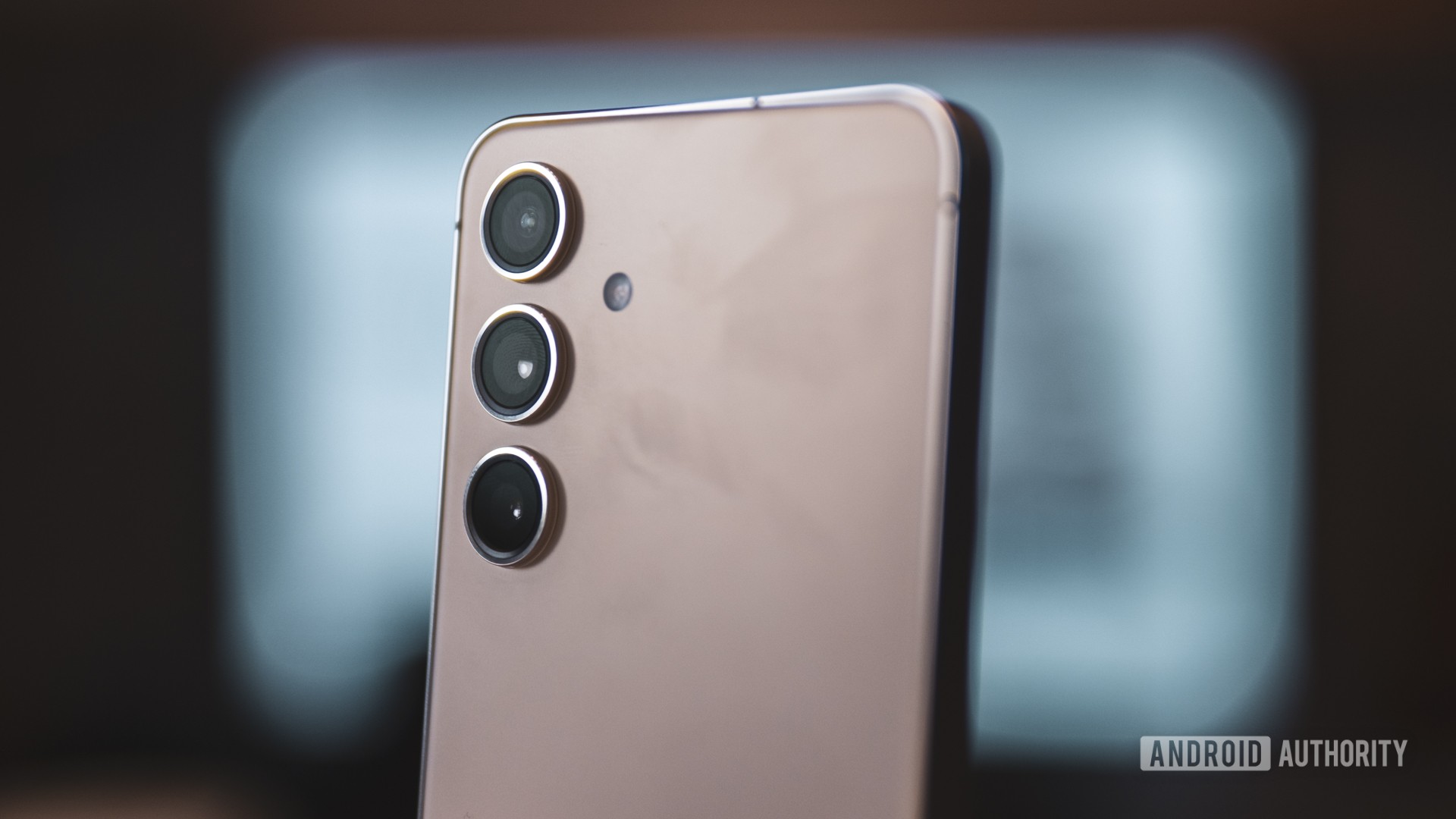
Robert Triggs / Android Authority
Galaxy S24
Up front, the Galaxy S24 features a 12MP f/2.2 camera for selfies and video calls, while the Pixel 9 opts for a 10.5MP sensor.
When it comes to software, the Pixel 9 offers a host of camera modes and editing tools, ranging from Macro Focus, Night Sight, and Face Unblur, to Magic Editor and Eraser, Best Take, and Cinematic Pan. Samsung, in turn, includes Generative Edit, which leans on Galaxy AI to reposition, remove, or resize objects in photos.
Pixel 9 vs Galaxy S24: Battery life and charging
When it comes to battery and charging specs, the Pixel 9 clobbers the Galaxy S24, at least on paper. The Samsung phone packs a 4,000mAh battery, 25W wired, and 15W wireless charging. The Pixel 9 has a 4,700mAh battery with 27W wired and 15W wireless charging, provided you have the right charging brick or Qi wireless charger.
Both phone batteries should carry their devices through an entire day of use and then some.
It’s also worth noting that the Galaxy S24 Snapdragon model barely beat the Pixel 8’s battery endurance during our tests. The Pixel 8 outlasted its newer challenger when it came to using Zoom, browsing the web, using the camera, and even during gaming. The Galaxy S24 only beat the Pixel 8 during 4K playback (perhaps owing to more frugal display tech) and 4K recording. This bodes well for the Pixel 9’s real-world endurance chops. In reality, both phone batteries should carry their devices through an entire day of use and then some, but this will depend on your usage habits.
Well before firing up any benchmarks, the Pixel 9 appears to be the better bet if longevity and theoretically quicker charging are important to you.
Pixel 9 vs Galaxy S24: Price and availability
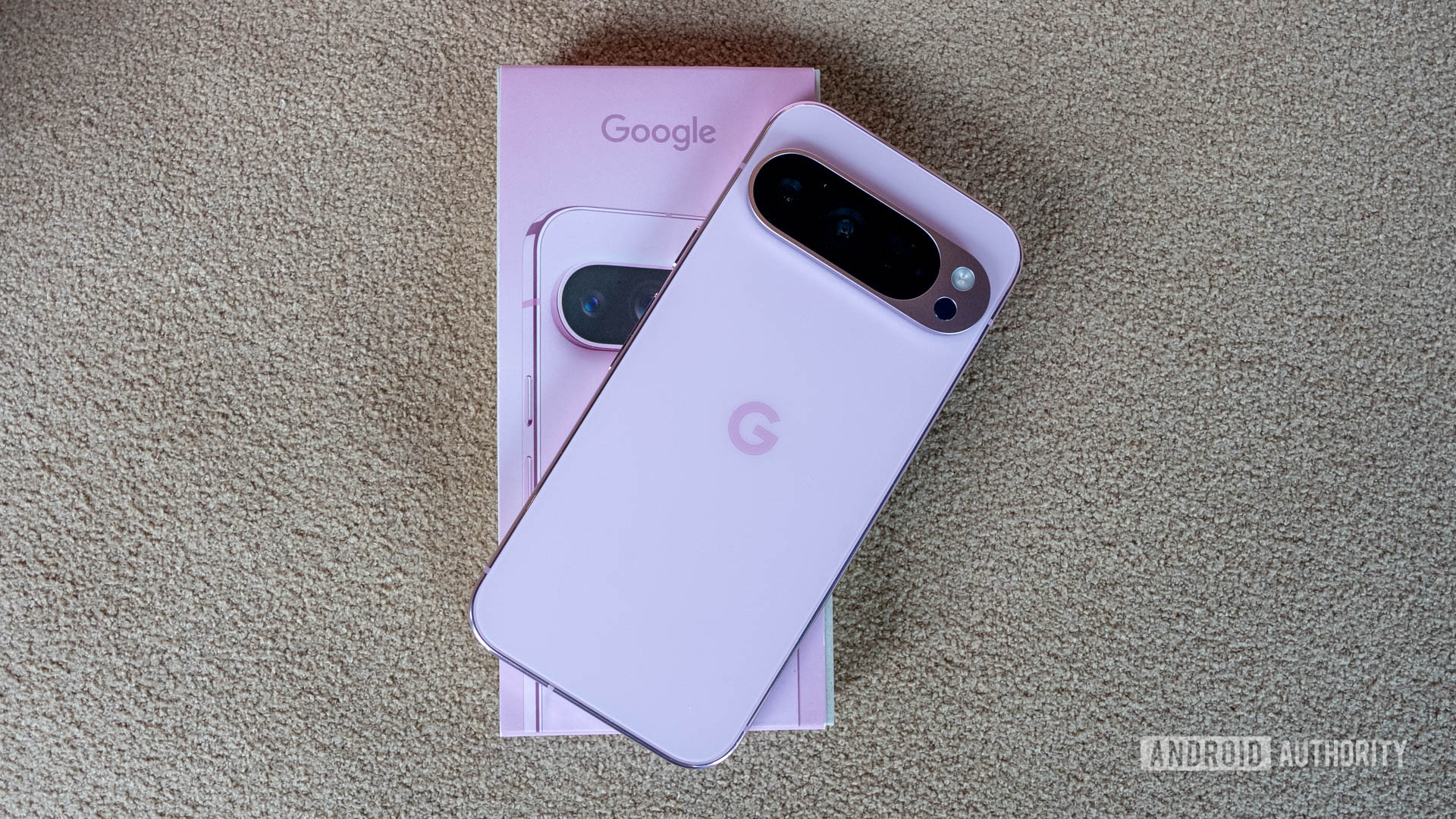
C. Scott Brown / Android Authority
Google Pixel 9 (12/128GB): Starts at $799
Samsung Galaxy S24 (8/128GB): Starts at $799
Both phones start at $799 this year thanks to the Pixel 9’s $100 increase over its predecessor. Google’s phone debuted on August 13, 2024, at the company’s Made By Google event. Preorders opened on the same date, with the device widely available in the US, Canada, the UK, and other countries where Google sells its hardware from August 22.
The Galaxy S24 is available globally, but as a reminder, there’s a distinct difference between US models and those available in other regions. Buyers in the former country will receive the Qualcomm Snapdragon 8 Gen 3 for Galaxy version, while global markets will receive a phone with the Exynos 2400 chipset.
That said, you’ll be able to buy it in many, many more regions than the Pixel 9, making it a better bet for international audiences. Either way, the Samsung phone has been available since its launch date of January 17, 2024, and is still available via major retailers.
Google Pixel 9 vs Samsung Galaxy S24: Which should you buy?
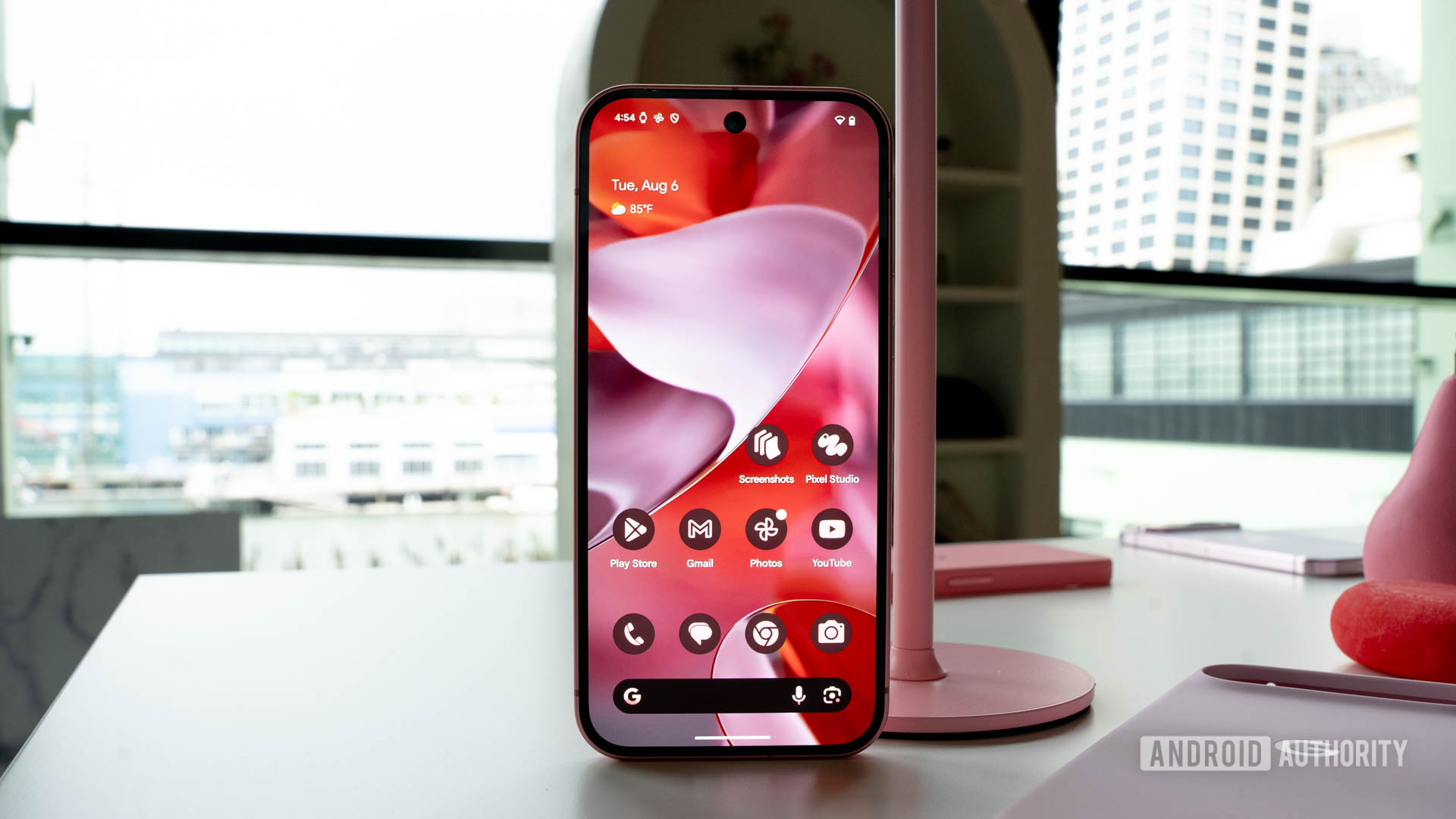
C. Scott Brown / Android Authority
Pixel 9
Whether you opt for the Google Pixel 9 or the Samsung Galaxy S24, you’ll get a premium Android experience. That said, each phone excels in particular areas.
Let’s start with Samsung. The Galaxy S24 is more powerful on paper, more compact, and available in more regions than the Pixel 9. This makes it a better bet for those who value performance, a smaller form factor, and after-sales support. Importantly, it’s also the only one of the two phones that features a telephoto camera. Even though it’s a modest 3x lens, it’ll still reach much further than the Pixel 9.
The Pixel 9 offers a larger battery and exciting design, while the Galaxy S24 includes more powerful hardware and a more versatile camera setup.
Alternatively, the Pixel 9 is slightly larger and much heavier but trades this for a bigger battery and a more massive display. It’s unclear how efficient the Tensor G4 is, but that 700mAh of extra power should give the Pixel 9 more time between top-ups. When you need to charge both phones, the Pixel 9 has the faster maximum charging speeds. Although it also lacks a telephoto lens, I believe it has the more exciting camera lineup with a much improved ultrawide sensor. Other minor tweaks over the Pixel 8 also add to its allure for Pixel fans.
So, which should you buy? Considering each cost $799, the decision really comes down to subjective preferences. There’s no winner in this particular battle, but isn’t that an exciting development?
Google Pixel 9 vs Samsung Galaxy S24: Which is the better buy?
0 votes
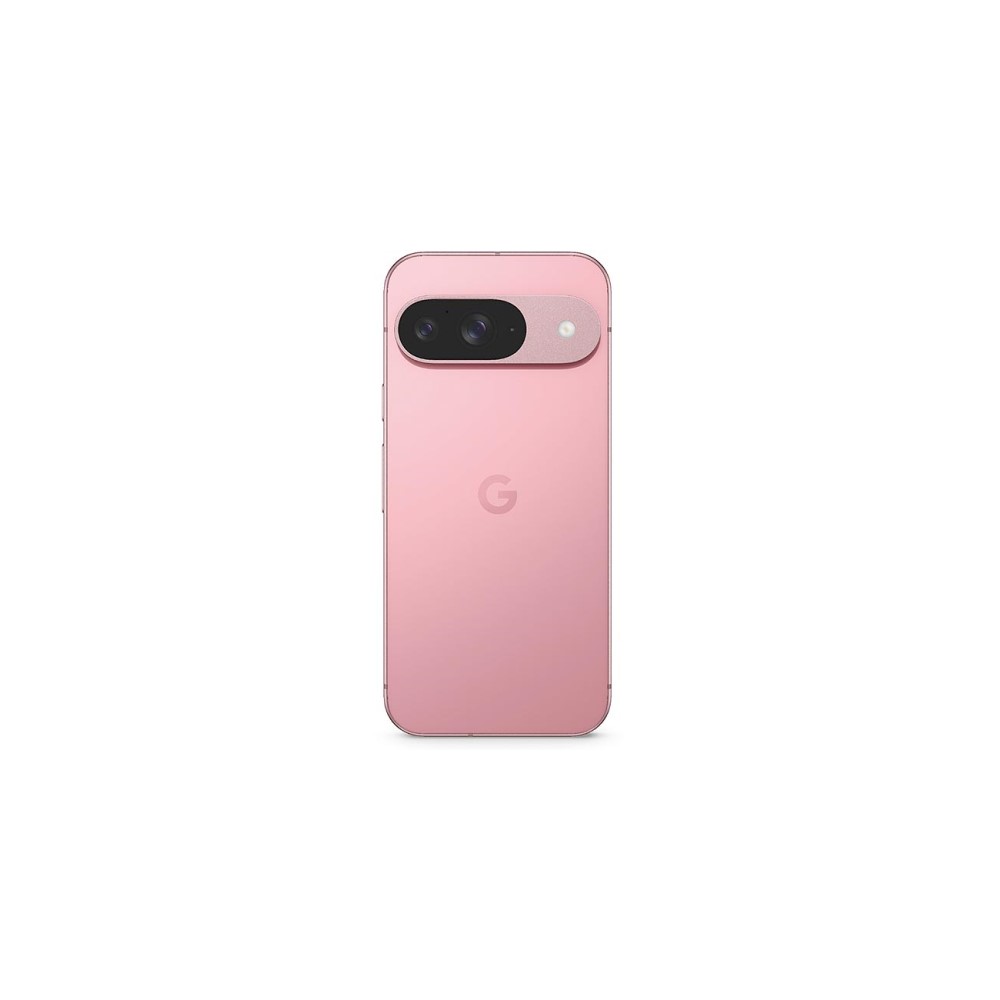
Google Pixel 9
Most affordable Pixel 9
Seven years of updates
Refreshed design
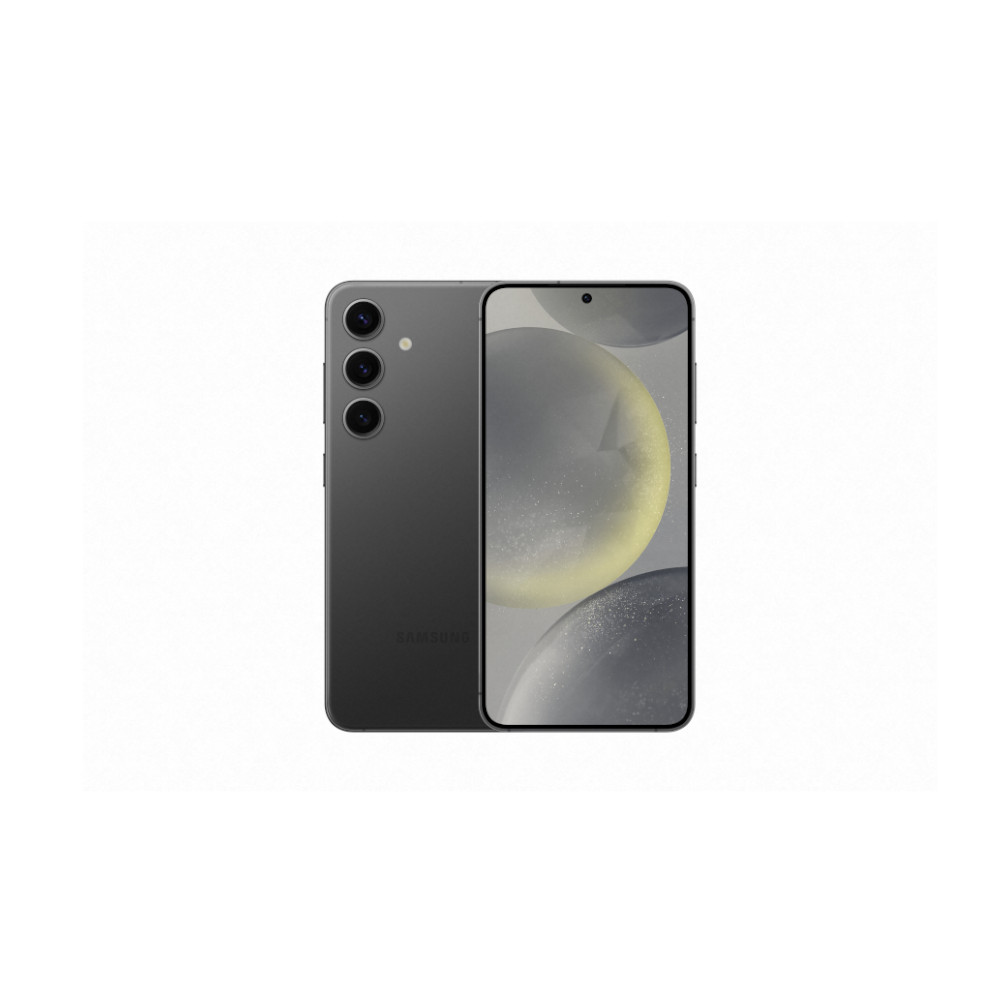
Samsung Galaxy S24
Seven-year update commitment
Neat AI features
Robust battery life
Google Pixel 9 vs Samsung Galaxy S24: FAQ
Yes, both the Galaxy S24 and Pixel 9 support wireless charging at 15W and 18W, respectively.
No, neither phone offers a microSD card slot.
Yes, both phones offer a physical nano-SIM slot and support for eSIMs, giving them dual-SIM functionality.
Source link

